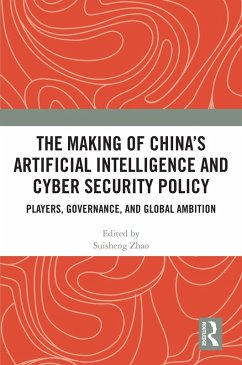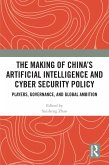societies and international politics. China has responded to the transformation and
strived to become one of the global leaders. What is China's approach toward the objective?
Who are the major players and stakeholders in the making of digital policy? How has
the Chinese state worked with various stakeholders? To what extent has digital technology
influenced China's authoritarian governance? How has Chinese society responded
to digital authoritarianism? Can China prevail in shaping global digital rulemaking? This
edited volume seeks answers to these important questions. Divided into three parts,
Part I examines how the central state has become a leading player and coordinated with
various stakeholders, such as academic institutions, corporations, and local governments,
in making digital technology policy. Part II analyses how the Chinese party-state used digital
technology to strengthen authoritarian governance and how society has responded
to digital authoritarianism. Part III explores China's attempt to shape global digital rulemaking
in competition with the US and other Western countries.
This book is aimed at scholars, researchers, policymakers, and students with an interest
in digital technology, international relations, Chinese politics, and authoritarian
governance. It will also appeal to those studying AI, digital governance, and global power
dynamics.
The chapters in this book were originally published in the Journal of Contemporary
China and come with a new introduction.
Dieser Download kann aus rechtlichen Gründen nur mit Rechnungsadresse in A, B, BG, CY, CZ, D, DK, EW, E, FIN, F, GR, HR, H, IRL, I, LT, L, LR, M, NL, PL, P, R, S, SLO, SK ausgeliefert werden.









